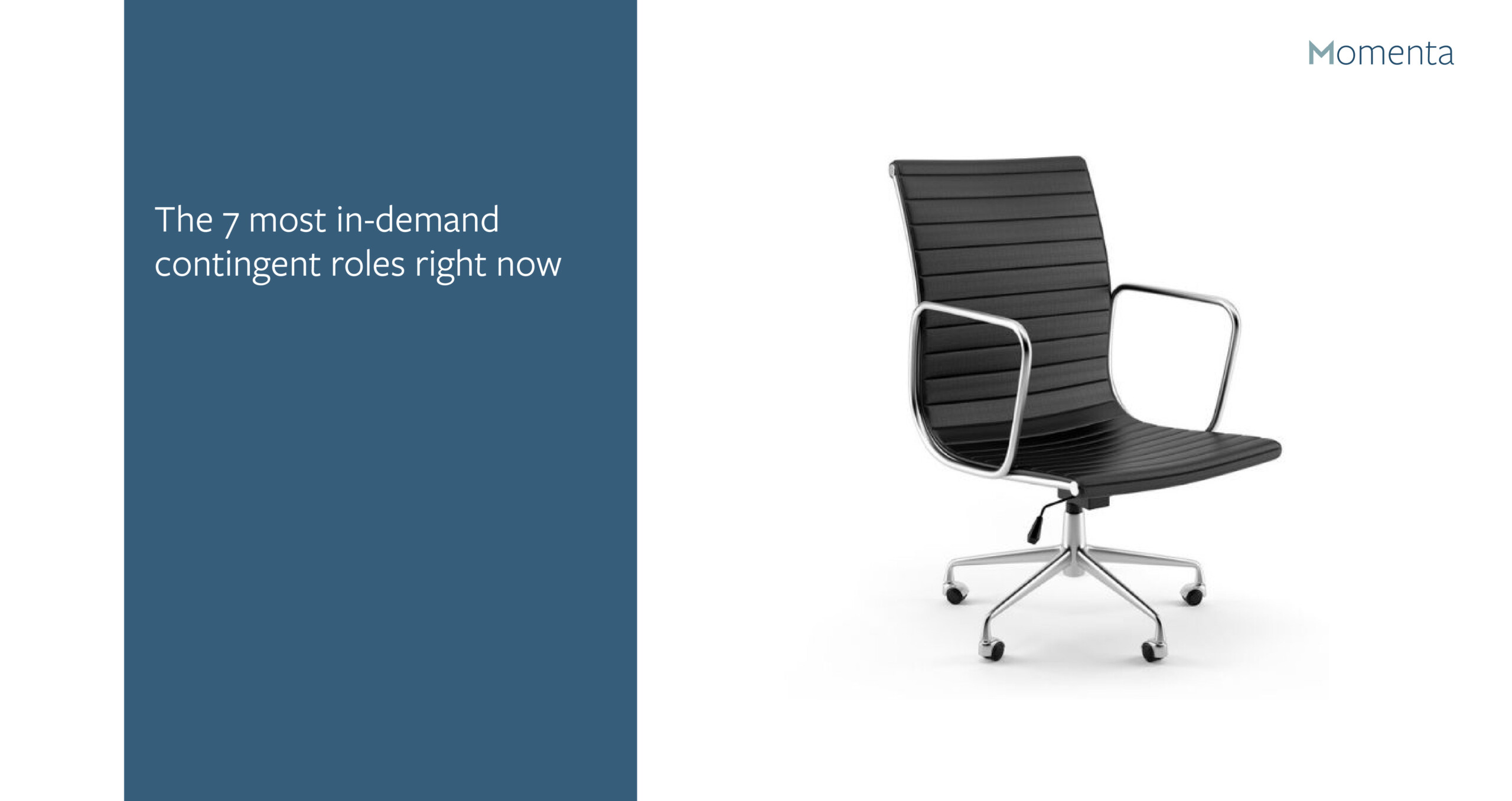The 7 most in-demand contingent roles right now
All facets of society and business are forced to create new norms to adjust to the COVID-19 world we now inhabit. Global job losses have also hit an all-time high leaving unemployment rates soaring. The contingent market is booming as firms move away from hiring permanent staff and turn to contingent staff on a project basis- which has led many to change their career paths to contingent ones. Now more than ever businesses’ lifelines rely on that of the remote workforce to drive their operations as businesses try and change their models to adjust to new market landscapes.
If you are looking to become or are already a contingent worker, we have highlighted the most popular contingent roles that have seen a significant increase over the past few months, as well as what has led to the need for these types of roles.
- Collection Handlers
During these unprecedented times, businesses, those trying to collect finance payments from consumers, are facing challenges they might never have anticipated or planned for. The government has mandated financial support for individuals and some SMEs in the shape of payment holidays. This has left lenders picking up the tab as they seek to not only create appropriate policies and procedures but also to amend systems and train staff to cope with the sheer amount of additional work placed upon their collection teams. Lenders are needing to stand up additional capacity remotely and at speed. However, whilst working intensively to face the crisis, it is a challenge to handle this task in house, especially from a collection’s perspective. These roles have increased significantly over the last few months, as firms have turned to empathic and experienced contingent collection handlers to help with the overwhelming demands placed upon them.
- AML analysts
2020 has already seen a host of data security breaches. Hackers are concentrating on larger targets with higher rewards. This year has seen a cyber-attack hit a major facilities company that has half a million employees worldwide (Joe Tidy & David Molloy, 2020). Global cybercrime is predicted to cost around $6 trillion annually by 2021. Data and information sharing are key in combating and understanding financial crime. Organisations need the ability to combine all this data from across channels and sources to build a clear picture of financial crime and power more effective detection and prevention measures. As a result, increased AML monitoring and detection have led to a higher demand of contingent AML analysts who can assist in mitigating Anti-Money Laundering and Terrorism Financing (AMLCTF) risk by providing a professional AML/CTF Screening and assessment service.
- Case Assessors
Fiscal and monetary policies have been reviewed and changed to accommodate financial support for individuals and businesses. This has left global lenders in a flat panic as they battle to cope with the sheer amount of additional work placed upon them and their remote workforces. Customer complaints have risen significantly as a result of increased demand. One of the biggest compliant scandals still affecting firms in the FS sector is PPI complaints. Customers need to be updated on when they can receive a final response as well as any update the firm may have. Most PPI claims should be receiving final communications and updates during the summer. The FCA and other regulatory bodies will still be checking that all complaint handling not only carries on as normal but is done so in a fair and timely manner. Case accessors have been hired on a project basis to ensure that any type of complaint handling is seen to in a timely and regulated fashion.
- LIBOR specialists
All lenders and a lot of borrowers are facing the biggest change since the implementation of the Euro, as firms transition away from London Inter-Bank Offered Rate (LIBOR). On the 16th of January 2020, the FCA and the PRA issued letters to banks and insurers, explaining their expectations of institutions’ transitional planning for 2020 highlighting the need to act now rather than later. One of the biggest challenges will be that of re-papering and reviewing fallback language before the December 2021 deadline.
The migration from LIBOR will be a complicated process of switching to a new index rate – repapering and reviewing fallback methodology in all contracts based on a new index is likely to require external support. LIBOR contingent roles will involve:
- Administrative roles: Identifying the contracts that need to be swapped
- Solicitation roles: Re-paper according to an appropriate index rate and Reviewing fallback language
- Call handler roles: Communication to the end customer regarding their new rate
- Review remediation
The Royal Commission which commenced in December 2017 to investigate misconduct in the Banking, Superannuation, and Financial Services Industries. The final report was submitted by Commissioner Hayne in February 2019. Within the report, 76 recommendations were made, with many of these surrounding financial advice, which will have a substantial impact on the future of the advice sector in Australia. This has triggered substantial investigations of both advisers individually, as well as the industry, which has been the cause of a significant influx of contingent roles being created as the industry rapidly generates a capacity to deal with this demand. Given the speed and scale at which the industry has been required to react, the traditional permanent role has not necessarily been the most suitable option for many clients. To date, the final report stated that circa $1.5 billion in remediation has been returned to customers, and the total is expected to approach or even exceed $10 billion. Financial advice roles or roles with a related background, have increased in Australia. The use of contractors has allowed clients to rapidly respond – providing the right people in the right capacity at the right time. We forecast this demand will continue to grow into the future.
- Managed service analyst roles: Commercial litigation Lawyers
Britain’s longest-running scandal has placed a serious financial strain on several banks and profit margins have been impacted significantly, not to mention the strain placed on key shareholders who have not reaped the benefits they expected. Banks also did not prepare for a pandemic with plummeting stock markets and global recessions. This will lead many banks to now change forecasting for their ROE to ones that are acclimatised to the negative financial effect of a pandemic but also accounting for the extended negative interest rates of the scandal. Currently, it is estimated that £50 billion of PPI insurance was sold of which the banks have only refunded £36bn according to the Association of Claims Companies (ACC). Commercial litigation lawyers have been in high demand in the UK and seen a rise in the managed services.
7. Technology
Financial services are not the only sector turning to the contingent workforce to help cope with the additional demand. Digital transformation is key and will help ensure that teams can effectively and efficiently communicate remotely with ease. Roles in digital transformation have been on the rise globally, however, we have seen a sharp increase in the need for data science ad developer roles in India. These can be attributed to organisations investing more in their digital platforms and getting a better understanding of their data.
There has never been a greater need to staff these vital industries which essentially governs people’s livelihoods under the extreme circumstances in which we find ourselves. Record levels of demand have been recorded for the need for contingent roles that require skilled individuals to staff customer and public-facing call centre operations, claims management, and loan deferment roles.
We at Momenta are doing our best during these harsh times to ensure that we are offering as many contingent remote roles as possible. If you are looking for a contingent role have a look at our latest vacancies and become a Momenta Associate today.

